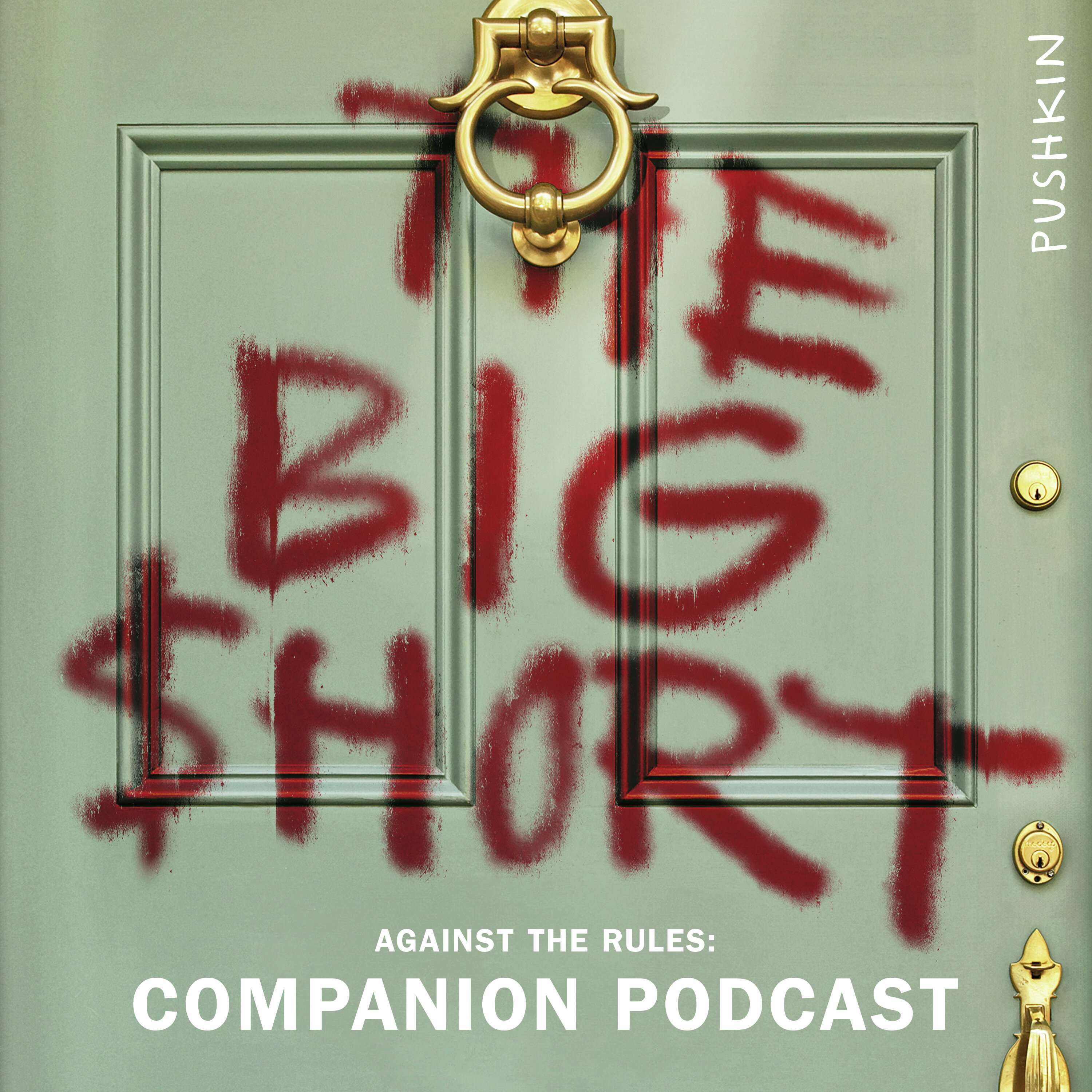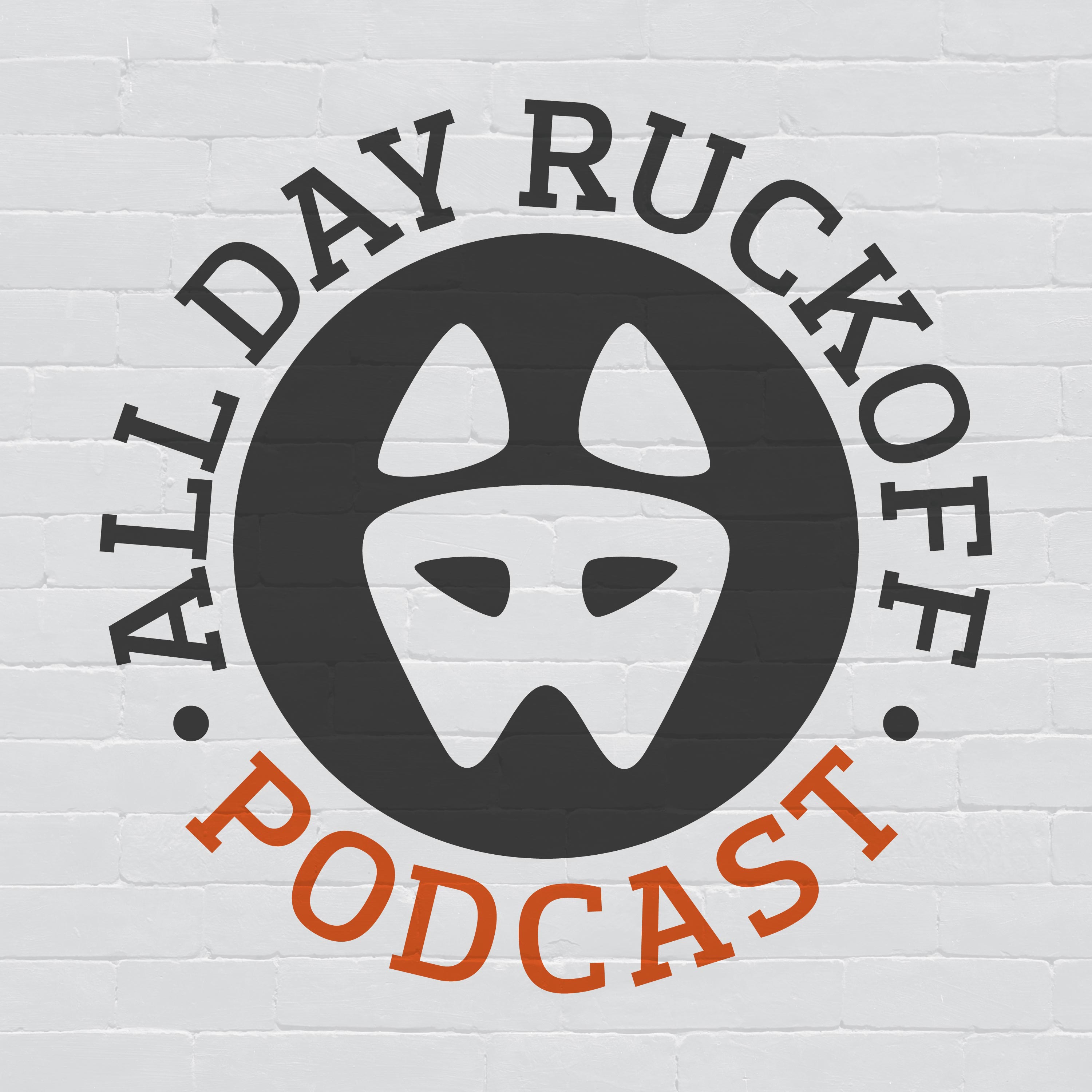
Survive Everyday
The Survive Everyday Podcast explores the stories and systems that shape our lives, focusing on resilience, inequality, and change. Through candid conversations with individuals, policymakers, and experts, we uncover the hidden barriers that keep people struggling and discuss solutions to dismantle them. Our mission is simple: to spark understanding, challenge the status quo, and inspire action toward a fairer, more equitable world.
Survive Everyday
The Real Welfare Queens
Billionaires are rewriting the rules of democracy—should we be worried? Join us alongside my guest, Ohio State Representative Joe Miller, as we dissect the seismic shifts in political influence.
We tackle complex questions about transparency, the rise of dark money, and the ethical dilemmas posed by wealthy billionaires steering political narratives.
We explore Steve Bannon's "flooding the zone with shit" tactic, a strategy designed to divide and conquer public attention. We'll reflect on historical lessons, like the fall of the Roman Empire, to stress the vital role of strong institutions in preserving democracy, looking closer at what our Declaration of Independence had to say about authoritarianism.
This episode offers new interactive avenues for dialogue and drawing inspiration from Matthew Desmond's "Poverty by America." Let's rally for balanced political solutions and resist the pull of manipulated outrage.
sources:
Michael Lewis Article, Has Anyone Seen The President?
Heimler's History Citizen's United v FEC : This audio was shortened to fit for time, but the key points remain the same.
Survive Everyday on Bluesky
Adam on TikTok
I, Donald John Trump, do solemnly swear that I will faithfully execute the office of President of the United States and will, to the best of my ability, preserve, protect and defend the Constitution. I will, to the best of my ability, preserve, protect and defend. Preserve, protect and defend.
Adam Gercak:Welcome back to the Survive Everyday Podcast and our special series Spark of Change. I'm your host, Adam Gercak. In the last episode we dove into money and politics and the consequences it can have in public education. We're going to continue our conversation with Joe Miller and go even deeper on the topic of billionaires in politics. I guess the logical place to start is Citizens United. In an effort to explain it as fast as possible, here's a clip from a YouTube channel called Heimler's History about why the decisions in Citizens United v FEC matters so much.
Hiemler's History:As always, let's begin with the facts of the case. Now, this case is all about campaign finance laws, and I have a whole video going into depth on that and you can see it right over here for a more robust history. But here we're going to start with the Bipartisan Campaign Finance Act, or BICRA, passed in 2002. In addition to articulating limits for individuals contributing money to political candidates, there's really just one thing you need to know about this act with respect to the Citizens United case Part of the BICRA law made it illegal for corporations or non-profits to engage in electioneering communications for 60 days before an election or 30 days before a primary. So you want to pay a buttload of money to smear a candidate, fine. But once we hit that 60 days before the election, you gotta shut your mouth hole. Now, during the 2008 Democratic primaries, a close contest for the party nomination was heating up between Hillary Clinton and Barack Obama, and a conservative group called Citizens United decided to make a film called Hillary the Movie. The film was full of damning accusations against Clinton and was intended to derail her bid for the presidency. However, by the time it was ready to be released, it was already during that forbidden period in which corporations had to keep their mouth holes shut about political candidates, thanks to Bikram. And so Citizens United challenged this portion of the law and it went all the way to the Supreme Court.
Hiemler's History:Ok, so why does this case matter? Well, the perennial question when it comes to campaign finance is this; since money equals speech in the political arena, is it fair for those with the most money to have the loudest voices? In the Citizens United case, the Supreme Court essentially said yeah, that's fair. So now corporations and labor unions and non-profits and other organizations can spend as much money as they want, provided they don't collaborate directly with the candidate on political communication right up to election day. The campaign finance reform laws were put into place to put the kibosh on corruption in elections, but the court ruled that just because a friendly organization is spending a bunch of money on a candidate's behalf doesn't necessarily mean that the candidate owes them favors, which is already illegal under other laws. At the end of the day, this is an issue that still ruffles feathers and is far from being decided in the minds of the American public, even if it is decided in the courts. Okay, that's what you need to know about Citizens United v FEC.
Adam Gercak:Citizens United should kind of change the dynamic right yes, it did. How do you unring that bell? Is it possible?
State Rep Joe Miller:Sure. So we're a three-branch government. We have checks and balances, which means that the Supreme Court is not the end-all, be-all, is not the only. However, they have a role of interpreting what the Constitution means and what the rights within the Constitution, what the powers within the Constitution and what the powers of the people are versus the government. They have ruled that the people should be able to do whatever they want, in any format. They can come together and bring a bunch of money together and utilize it to affect elections, and that would be fine If I write a check, though.
State Rep Joe Miller:Now, in this day and age, get on and use a credit card, it seems, or I give you a donation. You know where that comes from. There's just so much dark money out there. There's just so much money that's going into advertisements, you know. The biggest one, for example, was in this past election.
State Rep Joe Miller:What they call the crypto bros or whatever they were calling it.
State Rep Joe Miller:They spent a ton of money, but you know who they are. And they came in, they created their own little PAC and they dumped a bunch of money into it. It's hard to find out who, what, where, who's spending it. It doesn't have to be told. People don't know who's behind it. And then they dumped a ton of money into just a bunch of nasty ads, which just seems to be the new strategy, the new playbook for politicians on both sides. Hey, listen, if you want to say something negative or you want to own it, you want to come out and make an accusation, then you should own it. They, you want to come?
State Rep Joe Miller:out and make an accusation, then you should own it.
State Rep Joe Miller:They're hiding behind these walls of money and it's disgusting. It's disgusting, Own your statement.
Adam Gercak:If you remember what Joe said last episode, " I don't think race is the biggest problem right now, but I do believe the gap between the rich and the poor is causing the most damage to our democracy. So why is this so dangerous?
State Rep Joe Miller:Should somebody have the ability to be above the law because they have that much wealth? So I used to teach my students I'm like, listen, there's a power equation, and they would look at me kind of funny like where's this in the textbook? And I'm like, well, it's kind of the Miller power equation and I talked about wealth being one of the pieces of one of the variables in the power equation. And wealth, an exorbitant amount of wealth, can put you above the law, can put you above education, can put you above a lot of things of strength, Like I can be the weakest guy, but if I'm a billionaire I'll buy my army.
State Rep Joe Miller:I'll buy my scientists, I'll buy my politicians.
State Rep Joe Miller:I'll buy my scientists. I'll buy my politicians. I'll buy my judges. I'll buy the law. Who's sitting next to Trump right now, buying their ability to do what they want to do? That makes me nervous.
Adam Gercak:If you caught any of the inauguration coverage, you probably noticed something. You probably noticed who was seated near the President Trump Elon Musk, Jeff Bezos, Mark Zuckerberg and Sundar Pichai Some of the richest people on the planet. They sat right behind Trump's family, but ahead of his own cabinet nominees. It might feel unprecedented to see business moguls in such close proximity to political power, but it's not. Throughout history, wealthy industrialists have had direct access to US presidents, especially in capitalist democracies like ours. Titans of industry like Henry Ford, Andrew Carnegie and JP Morgan were close to leaders like Theodore Roosevelt and Woodrow Wilson, shaping the policies that shaped the nation. This kind of cozy relationship has always been a hot zone where economic clout meets political strategy. There used to be limits. Teddy Roosevelt, known as the "Trust Buster, took on the monopolies of his day using the Sherman Antitrust Act of 1890. His administration broke up giants like Rockefeller's Standard Oil and JP Morgan's Northern Securities Railroad Trust. Later, during Woodrow Wilson's presidency, the Clayton Antitrust Act added more teeth to the fight against monopolies. It even gave labor unions protection, ensuring the right to strike without being labeled monopolies themselves.
Adam Gercak:Fast forward to today and billionaires in the digital age are playing by a different set of rules. Their influence isn't just about oil or railroads anymore, it's about technology, data and global reach. I guess it comes to. The question is how do we take down the walls that we built around those pockets of wealth? Because the billionaire is going to say well, joe, that's all well and good, but I'll guarantee you, you tax me more. One I'm going to donate to your competitor. That's one thing I'm going to do. The One I'm going to donate to your competitor that's one thing I'm going to do. The second thing I'm going to do?
State Rep Joe Miller:is you're going to stifle innovation in this country? Well, I think there is. Do you know how much innovation is being stifled by the amount of human capital that's never getting a chance to be able to make it through an education system and not be incarcerated and not be hungry, not die of health reasons or societal reasons? I would say there's a lot more loss there than there is in. Hey, I could have had $5 million more. I couldn't invest it in new technology or whatever. There's a lot of innovation in backs, in garages, in the basements, in little shacks or shops behind, like Edison behind his house. I mean seriously. That argument falls for me a little flat.
State Rep Joe Miller:Okay, I don't know, for me a little flat. Okay, I don't know, just me, I mean.
State Rep Joe Miller:Well, you're right, they'd come after us.
Adam Gercak:Weren't we sending people to the moon under the highest taxation of those?
State Rep Joe Miller:Yeah, we were.
State Rep Joe Miller:So we're still doing that. Excellent point.
Adam Gercak:Weren't we.
State Rep Joe Miller:Excellent point, didn't?
Adam Gercak:they come up with electric car back in the early 1900s, when they were taxing people more, you know.
State Rep Joe Miller:I don't—. Those innovations were there, weren't they?
Adam Gercak:Yeah, but what innovations have happened, let's say, since 1980 to today, that weren't already in some form started under that possibility?
Adam Gercak:Cell phones were still a thing back before 1980.
Adam Gercak:They were just government. Only you know the small WANS, the internet.
State Rep Joe Miller:I would say you made the point, you made the argument and I would support that thesis. For sure that you know those innovations can still happen, even if you're not sitting on an exorbitant amount of wealth. You know listen these billionaires have so much money they could take you out and nobody would know.
Adam Gercak:Thanks to the Citizens United ruling, billionaires already wielding enormous power through their grip on the economy now have a new weapon Unlimited money to pour into their political campaigns. They can bankroll candidates who will play by their rules and if you don't toe the line, they'll fund someone else to run against you. It's influence on steroids. But how does all this power actually work? How is it used to keep us divided? The answer came to me in an article by Michael Lewis from 2018. He described watching the State of the Union address alongside Steve Bannon, the strategist behind Trump's 2016 victory, over lunch with Lewis Bannon laid it out bluntly, quote the Democrats don't matter. The real opposition is the media, and the way to deal with them is to flood the zone with shit. So what does flooding the zone with shit actually look like?
Fox News Reporter:This hand motion looked like a Nazi salute To do meet certain conditions before they can get federal aid. They decided to employ their money and their means, and their first person really was Peter Thiel.
Donald Trump:I think also he, you know he said, gee, did Biden do this? I think he wanted to set a contrast with Biden, you know, by going sort of having this role.
Adam Gercak:Steve Bannon might be long gone from the Trump administration, but his playbook is still front and center. In that same 2018 interview with Michael Lewis, bannon made his vision clear it's not about ethno-nationalism, it's just nationalism. He said We've got to make citizenship as powerful as it was in the Roman Republic. Trump has taken this idea and run with it, turning US citizenship into something he openly fetishizes. Now he's making it a condition for providing aid. Take California, for example. Wildfires have just devastated countless homes in Los Angeles, but Trump is tying relief efforts to citizenship, making it a pillar of his policy.
Donald Trump:Voter identification. You want to have proof of citizenship. Ideally, you have one day voting, but I just want voter ideas to start and I want the water to be released, and they're going to get a lot of help from the US.
Adam Gercak:What Steve Bannon conveniently ignores about his obsession with Roman-style nationalism is that the Roman Empire didn't fall because it lacked strong citizenship. It fell because of internal political chaos, economic decline and reckless military overspending. His glorification of the past skips over the part where it all came crashing down. This is exactly what flooding the zone with shit looks like Throwing a barrage of disconnected controversies into the biggest media outlets cable news, social media and beyond to distract and divide us. The fuel for this chaos is anger. They create a boogeyman and tell us the reason we're struggling economically is because someone crossed the border and stole our job, or that a poor person is stealing our money by being lazy and not getting a job. But here's the truth the ones robbing us blind aren't crossing borders. They're sitting comfortably behind the president at his inauguration. They own the social media platforms we scroll, the newspapers we read and the stores we shop at and the search engines we rely on, and it's becoming clearer by the day how much influence they have over a president.
State Rep Joe Miller:I don't think anybody should be near government that has that kind of money and, I think, government.
State Rep Joe Miller:there should be a wall of separation between that, and you know what that wall of separation is. The fourth estate, the bureaucracy, the people who can oversee it, the FBI. So what do you do? The CIA, the FBI, the Attorney General, the justice system all those are set up to make sure that, regardless of how much strength you have, how much money you have, how much knowledge you have, right, all those things are not going to be above the law, are not going to be able to allow you to take the rights away from others. Well, guess what? If you put those people in those positions, you've now stopped our system from working and keeping people from being above the law, and this becomes an oligarchy, this becomes an autocratic system. We better have a strong Congress I don't care R or D, they better be constitutionally strong, or this experiment is going to be probably tested to its breaking point.
Adam Gercak:Many episodes ago, I read the Declaration of Independence and I want to remind you of what it says, and perhaps a reminder to the politicians that took an oath to support and defend the Constitution of the United States.
Adam Gercak:Causes and accordingly, all experience has shown that mankind are more disposed to suffer while the evils are sufferable than to right themselves by abolishing the forms to which they are accustomed. But when a long train of abuses and usurpations pursuing invariably to the same object evinces a design to reduce them to absolute despotism, it is their right, it is their duty them to absolute despotism. It is their right, it is their duty to throw off such government and to provide new guards for their future security. All this flowery language to say this. People are naturally inclined to put up with problems as long as they can tolerate them, rather than make drastic changes to systems they're used to. But when a government repeatedly abuses its power and aims to impose absolute control, it is not just the people's right but their duty to overthrow it and create a new system that ensures their future freedom and security. I think we're closer to it than we'd like to admit.
Fox News Reporter:Well, that's where I'm told by police sources that the UnitedHealthcare CEO is walking out this morning around 645, heading to a very important annual meeting here for the healthcare company, when somebody was waiting for him, according to sources, outside across the street and shot him not once but twice Once in the chest and once in his leg.
Adam Gercak:The murder of the UnitedHealthcare CEO in late 2024 was a turning point, but not for the reasons you'd expect. The outrage online wasn't aimed at the shooter. It was aimed at the victim. It's a chilling reflection of where we are as a society. If Congress, tech giants and billionaires keep squeezing the public, what do they think will happen when people armed to the teeth feel like they have no other options? To everyone, glued to the news, pace yourself. The outrage you feel is being manipulated, weaponized and turned against you. We've normalized a dangerous mindset that a win for our side means a loss for theirs. In politics, the idea of a win-win solution has been completely erased.
Adam Gercak:I can't thank Joe Miller enough for his time and candor in sharing his experiences with us and his thoughts. Next time on Spark of Change, I'll talk to my friend Allison as we delve deeper into the reality of community-level poverty through the lens of a devastating medical crisis her family is facing. If you like this episode, please share it with your friends on social media and subscribe to the podcast in your favorite podcast app. Links to all articles referenced in this episode are linked in the show notes. We have a few new ways to interact with the show. Feel free to tag us on Blue Sky or you can now text us directly through a link in the show notes. We've also brought the podcast to YouTube. Although we don't use video, you can now listen to all our episodes on YouTube. This episode was written and edited by Adam Gerchak. Music for the podcast was provided by Pixabay. Special thanks to Matthew Desmond and his team for providing a copy of his book Poverty by America for our use in this special series. Spark of Change is a Survive, everyday Media podcast.
Podcasts we love
Check out these other fine podcasts recommended by us, not an algorithm.

Serial
Serial Productions & The New York Times
This American Life
This American Life
Against the Rules: The Big Short Companion
Pushkin Industries
Revisionist History
Pushkin Industries
Circle Of Nerds
Circle of Nerds
Juicebox Podcast: Type 1 Diabetes
Scott Benner
Fit, Fun, and Frazzled
Nikki Lanigan
All Day Ruckoff Podcast
Brian Lohr
This Ends at Prom
Pod People Productions
The Weekly Show with Jon Stewart
Comedy Central
The Daily
The New York Times
Burn the Boats
Evergreen Podcasts

